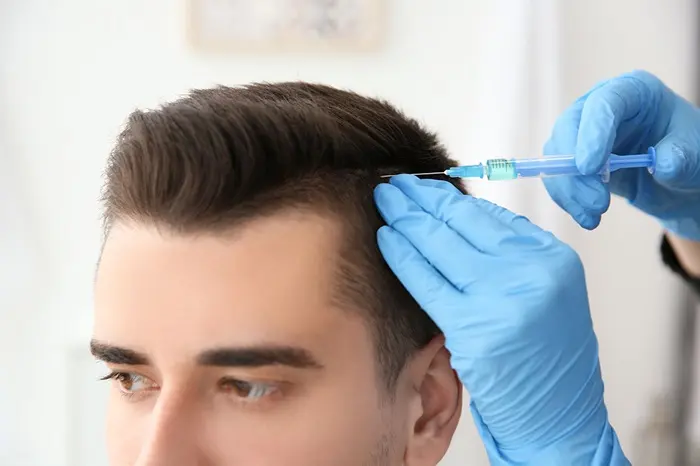Researchers from the University of Sheffield in England and COMSATS University in Pakistan may have inadvertently unearthed a groundbreaking remedy for male pattern baldness, a prevalent genetic condition affecting up to half of men and a quarter of women by the age of 50.
The breakthrough emerged during their investigation into the healing properties of naturally-occurring deoxyribose sugar on wounds. While applying the sugar to wounds on laboratory mice, scientists observed a swift regeneration of fur around the affected areas.
Intrigued by this unexpected outcome, the team delved deeper. They administered a small dosage of the sugar to male mice experiencing hair loss driven by testosterone, noting that it stimulated the formation of new blood vessels, subsequently prompting hair regrowth.
Professor Sheila MacNeil, emeritus professor of tissue engineering at the University of Sheffield, remarked on the implications: “Our research indicates that addressing hair loss could be as straightforward as using natural deoxyribose sugar to enhance blood flow to hair follicles, thereby fostering hair growth.”
Comparative tests revealed that the efficacy of the gel matched that of minoxidil, a well-known treatment for hair loss marketed as Rogaine. While minoxidil has demonstrated the ability to slow hair loss and induce regrowth in some cases, its effectiveness varies among individuals.
The Food and Drug Administration has sanctioned two drugs for treating hereditary-pattern baldness: minoxidil and finasteride (Propecia). Finasteride, approved for men but not women, has shown to mitigate hair loss in 80% to 90% of male patients, albeit with reported side effects including depression, erectile dysfunction, and reduced libido.
Alternative approaches to combat hair loss include laser therapies and surgical transplants. Entrepreneur Bryan Johnson advocates for a multifaceted strategy involving red-light therapy, micro-needling, and topical treatments.
Given the limited options and potential adverse effects associated with existing treatments, the prospect of a safe, non-invasive baldness gel represents a significant medical advancement. If proven effective in human trials, deoxyribose could potentially treat alopecia and stimulate hair, lash, and eyebrow regrowth following chemotherapy.
Despite the promising findings, MacNeil remains cautiously optimistic, emphasizing the preliminary nature of their research: “While our findings are encouraging, they are still in the early stages and warrant further investigation,” she noted in a recent publication in Frontiers in Pharmacology.
Related topics:

